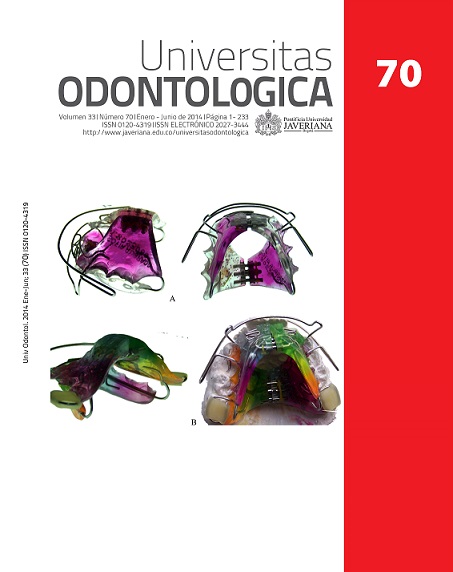Abstract
Background: Currently, degenerative diseases represent a public health problem; therefore, the development and implementation of strategies to fully or partially recover of damaged tissues has a special interest in the biomedical field. Therapeutic strategies based on mesenchymal stem cells transplantation from dental pulp have been proposed as an alternative. Purpose: To develop a mesenchymal stem cells culture isolated from dental pulp of deciduous teeth. Methods: The mesenchymal stem cells isolation was performed from dental pulp of two deciduous canines, freshly extracted with therapeutic indication. Specimens were cultured in D-MEM medium with 20% FBS at 37 °C and 5% CO2. The medium was changed every three days. 80-90% confluence was achieved after three weeks. Cells were stained with DAPI and STRO-1 and analyzed through flow cytometry and fluorescence microscopy. Results: The analysis showed that adherent cells had a fusiform fibroblast-like morphology and colony forming units (CFUs) were observed. 17% of the whole population was STRO-1+ and 26% of the larger and more complex population was positive to this antigen. Additionally, STRO-1+ cells were localized preferential in UFCs. Conclusions: The protocol described here could be used to enriching mesenchymal stem cells from dental pulp extracted from deciduous teeth and as a starting point for future therapeutic trials and their application in tissue regeneration.
KEYWORDS
cultured cells; stem cells; deciduous teeth
This journal is registered under a Creative Commons Attribution 4.0 International Public License. Thus, this work may be reproduced, distributed, and publicly shared in digital format, as long as the names of the authors and Pontificia Universidad Javeriana are acknowledged. Others are allowed to quote, adapt, transform, auto-archive, republish, and create based on this material, for any purpose (even commercial ones), provided the authorship is duly acknowledged, a link to the original work is provided, and it is specified if changes have been made. Pontificia Universidad Javeriana does not hold the rights of published works and the authors are solely responsible for the contents of their works; they keep the moral, intellectual, privacy, and publicity rights.
Approving the intervention of the work (review, copy-editing, translation, layout) and the following outreach, are granted through an use license and not through an assignment of rights. This means the journal and Pontificia Universidad Javeriana cannot be held responsible for any ethical malpractice by the authors. As a consequence of the protection granted by the use license, the journal is not required to publish recantations or modify information already published, unless the errata stems from the editorial management process. Publishing contents in this journal does not generate royalties for contributors.


